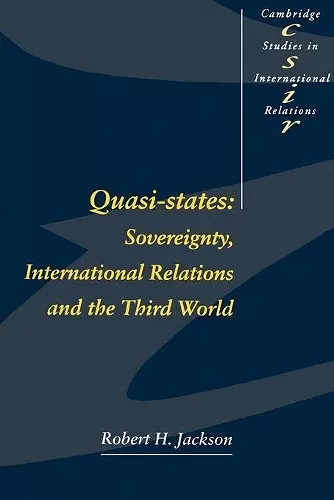Quasi-States
Sovereignty, International Relations and the Third World
Format:Paperback
Publisher:Cambridge University Press
Published:18th Mar '93
Currently unavailable, and unfortunately no date known when it will be back

In this book, Professor Robert Jackson develops an original interpretation of Third World underdevelopment, explaining it in terms of international relations and law. He describes Third World countries as 'quasi-states', arguing that they are states in name only, demonstrating how international changes during the post-1945 period made it possible for many quasi-states to be created and to survive despite the fact that they are usually inefficient, illegitimate and domestically unstable.
'This is an important book which ought to be read by all scholars studying Third World states … What Jackson does so well in this book is highlight the contradictory strands of theory and practice in world politics.' Politikon
'Robert Jackson has written a clever and subtle account of the incorporation of Third World countries, after decolonization, into the state system … bringing the Third World into the theoretical mainstream and demonstrating that the normative superstructure of the state system is itself a potent source of Third World behaviour, both nationally and also domestically.' Journal of Modern Asian Studies
'Robert Jackson's illuminating study adds considerably to our understanding of the diverse and complex practices that are so often conflated as a simple claim to sovereignity. It is a major addition to a burgeoning literature that has begun to treat sovereignity as a multidimensional and strenuously contested puzzle rather than a simple fact of life.' R. B. J. Walker, Canadian Journal of Political Science
ISBN: 9780521447836
Dimensions: 227mm x 152mm x 23mm
Weight: 400g
240 pages